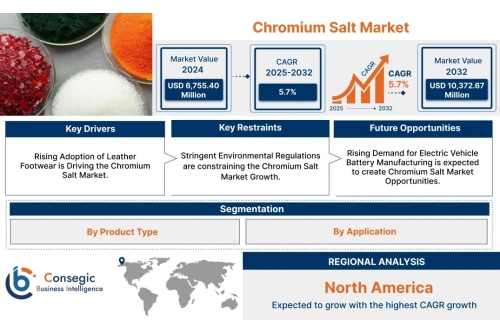Keeping your feathered friend's living space clean is essential for their health, happiness, and overall well-being. A dirty cage can become a breeding ground for bacteria, mold, and parasites, leading to serious health issues for your bird. But when it comes to maintaining cleanliness, pet owners are often torn between DIY bird cage cleaners and commercial solutions. Which one is better? Are homemade cleaners safe? Do commercial options provide better sanitation?
In this guide, we’ll explore the pros and cons of both DIY and commercial bird cage cleaners, offer best practices for cage cleaning, and help you decide which option works best for your needs.
Why Regular Bird Cage Cleaning is Essential
Birds are sensitive creatures, and their cages can quickly accumulate waste, food debris, and bacteria. Regular cleaning prevents:
Bacterial Infections: Dirty cages can harbor harmful bacteria.
Unpleasant Odors: Proper cleaning eliminates lingering smells.
Pest Infestations: Leftover food attracts insects and rodents.
Stress and Discomfort: A dirty environment can cause stress to your bird.
Understanding the importance of a clean cage is the first step toward effective maintenance.
DIY Bird Cage Cleaners: Pros and Cons
Many pet owners turn to DIY solutions for cleaning bird cages using common household items like vinegar, baking soda, and lemon juice. Here are the advantages and disadvantages:
Pros:
Affordable: Most DIY ingredients are cost-effective.
Readily Available: Ingredients are often already in your home.
Natural and Non-Toxic: Safer for birds when properly diluted.
Eco-Friendly: Fewer chemicals reduce environmental impact.
Cons:
Inconsistent Results: DIY cleaners may not always eliminate tough stains or bacteria.
Time-Consuming: Preparing DIY solutions can take time.
Limited Disinfectant Power: Natural ingredients may not kill all harmful pathogens.
Best DIY Cleaning Recipe:
Mix equal parts white vinegar and water.
Add a few drops of lemon juice.
Use a spray bottle to apply the solution.
Rinse thoroughly with clean water.
Commercial Bird Cage Cleaners: Pros and Cons
Commercial bird cage accessories, including specialized cleaners, are formulated specifically for pet safety and hygiene. Here's what you need to know:
Pros:
Highly Effective: Stronger disinfectant properties.
Convenience: Ready-to-use formulas save time.
Tested for Safety: Many products are vet-approved.
Targeted Solutions: Designed specifically for bird cages.
Cons:
Cost: Higher initial expense compared to DIY solutions.
Chemical Concerns: Some products may contain harsh chemicals.
Residue Risks: Inadequate rinsing can leave behind harmful residues.
Best Practices for Using Commercial Cleaners:
Always follow the manufacturer’s instructions.
Ensure proper ventilation during use.
Rinse thoroughly to avoid residue.
Key Differences Between DIY and Commercial Cleaners
Aspect
DIY Cleaners
Commercial Cleaners
Cost
Low
Higher
Effectiveness
Moderate
High
Convenience
Time-Consuming
Quick and Ready-to-Use
Environmental Impact
Eco-Friendly
Varies by product
Safety
Generally Safe
Depends on formulation
Deciding between the two largely depends on your bird's needs, your budget, and how much time you can invest in cleaning.
Best Practices for Cleaning Bird Cages
Whether you use DIY or commercial solutions, these best practices will ensure effective cleaning:
Daily Maintenance: Remove uneaten food, droppings, and debris.
Weekly Cleaning: Wash all perches, toys, and food bowls.
Deep Cleaning: Monthly disinfection of the entire cage.
Safe Rinsing: Ensure no cleaning residue remains.
Dry Thoroughly: Prevent mold growth by drying everything completely.
Proper maintenance keeps your bird’s environment safe and comfortable.
When to Choose DIY vs. Commercial Cleaners
Use DIY Cleaners If:
You prefer natural, chemical-free cleaning.
Your bird’s cage doesn’t have heavy stains.
You’re on a budget.
Use Commercial Cleaners If:
You need deep cleaning and disinfection.
You want convenience and efficiency.
Your bird’s cage requires frequent sanitation.
A balanced approach—using DIY cleaners for light cleaning and commercial cleaners for deep disinfection—often works best.
Safety Tips for Using Bird Cage Cleaners
Avoid cleaners containing bleach or ammonia.
Always remove your bird from the cage during cleaning.
Allow the cage to fully air-dry before returning your bird.
Use gloves when handling strong chemicals.
Read product labels carefully.
Prioritizing safety ensures a healthy environment for your pet.
Conclusion:
Both DIY and commercial bird cage cleaners have their unique advantages and drawbacks. While DIY solutions offer affordability and natural safety, commercial cleaners excel in efficiency and disinfection power. The best choice often depends on your specific needs, bird cage accessories, and cleaning frequency.
At Kwikpets, we offer a wide range of bird cage accessories and cleaning supplies tailored to keep your bird’s environment safe, clean, and comfortable. By combining regular maintenance with the right cleaning approach, you can ensure your feathered friend thrives in a hygienic and happy space.
Happy cleaning, and here’s to healthier, happier birds!
FAQs:
What is the safest DIY bird cage cleaner?
A diluted vinegar and water solution is one of the safest options.
How often should I deep clean my bird cage?
Perform a deep clean at least once a month.
Can I mix commercial cleaners with DIY solutions?
It’s best not to mix them, as chemical reactions can be harmful.
Are commercial bird cage cleaners safe for all bird species?
Most are, but always check the label for species-specific guidance.
Should I clean bird toys and perches separately?
Yes, clean them individually to ensure thorough sanitation.
Keeping your bird's home clean is one of the most important aspects of pet care, and with the right tools and knowledge, it can be both simple and effective.












